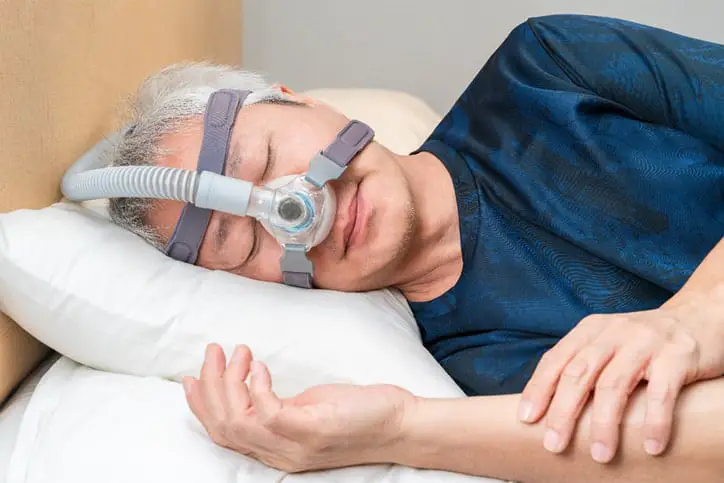If you have sleep apnea, you know that using the right type of CPAP mask is crucial for an effective CPAP therapy. You’ll want to choose a mask that both effectively delivers air from your CPAP machine and suits your comfort level. Luckily, there’s a CPAP mask type that’ll suit every individual and their sleeping habits.
Here, we’ll examine different CPAP masks to help you choose the right one for your CPAP therapy.
What to consider when choosing a CPAP mask
The most important components of a CPAP mask are its level of comfort and the effectiveness of its seal. Both depend on your sleeping habits and the type of mask you use.
Consider the following factors when choosing your CPAP mask:
The structure of your face -Your facial structure may determine how certain masks fit and whether you find them comfortable. An ill-fitting mask may feel uncomfortable while you sleep. If fit is a priority, consider a mask that doesn’t need to cover your entire face.
The position you sleep in - If you sleep on your side or stomach, a mask that applies a lot of pressure on your face could cause redness and irritation. Additionally, consider a mask that can accommodate movement if you tend to toss and turn while sleeping.
Whether you breathe through your nose or mouth –You can essentially wear any type of mask if you breathe through your nose. However, if you breathe through your mouth, you’ll want one that covers your mouth to deliver air through that airway. Otherwise, you may have to use a chinstrap to keep your mouth closed while you sleep.
CPAP Mask Types
There are three main types of CPAP masks:
Full-face Mask
OUR RATING
Full-face Mask A full-face mask covers your nose and mouth. It creates a seal over both airways, making it ideal for people who breathe through their mouth when they sleep. These masks are also good for people who require higher-pressure CPAP therapy, as the air pressure will feel less direct.
Full-face masks are suitable if you don’t want anything making direct contact with your nose. They only contact the outside of your face, which may make some people feel less stuffy and congested.
However, full-face CPAP masks have a higher chance of leakage. They can also feel bulky, especially if you sleep on your side or stomach. Additionally, a full-face mask may make it difficult to wear glasses.The mask may also obstruct your view, making it difficult to do small activities such as reading a book before bed.
Pros:
Cons:
Nasal Mask
OUR RATING
A nasal mask only fits over your nose, leaving your mouth free and exposed. The mask covers from the bridge of your nose to your upper lip and delivers a more natural airflow, making it great for people who require high pressure.
Nasal masks are popular because they’re a good compromise between the nasal pillow and full-face maskswhile being available in various sizes to accommodate any facial structure. They’re also a great option if you move around in your sleep, as there’s a smaller chance of leakage than with full-face masks.
Mouth breathers shouldn’t use a nasal maskunless they include a chin strap to keep the mouth closed. These masks may also irritate the bridge of the wearer’s nose due to excessive pressure.
Pros:
Cons:
OUR RATING
A nasal pillow mask only fits at the nostrils. It’s the most minimalist option and ideal for sleepers who breathe through their nose. They’re a great choice if you want less on your face or tend to feel claustrophobic. Most of your face is unobstructed with a nasal pillow mask, providing you with a full field of vision so that you can wear glasses, read a book, or watch TV.
Nasal pillow masks are also ideal for people who sleep on their side, stomach, or for those who toss and turn. Additionally, you may benefit from nasal pillows if you have a lot of facial hair since they don’t contact your face. However, you may experience discomfort with nasal pillows if you have your CPAP machine at a high setting.
For a more in depth review of CPAP nasal pillows check out our article: CPAP nasal pillows for sleep apnea-everything you need to know.
Pros:
Cons:
Try the Swift FX - Nasal Pillow CPAP Mask by ResMed
Conclusion
The right CPAP mask will make all the difference in your sleep, making sure you remain comfortable in whatever position you sleep in while breathing properly.
Your doctor may recommend one type of mask, but don’t be afraid to consider others. Try different masks before committing to one - you want to ensure you’ll feel safe and comfortable while you rest.
Damon Wiseley is a Registered Respiratory Therapist and Certified Pulmonary Function Technologist.



